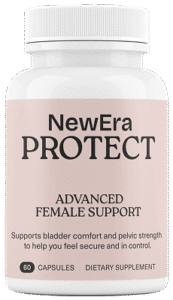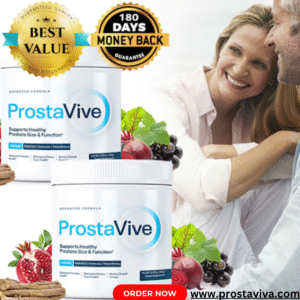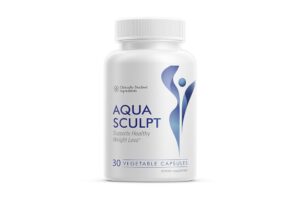The Ultimate Guide to 8KW Three-Phase Inverters: Features, Benefits, and Applications
Introduction An 8KW three-phase inverter is a crucial component in modern energy systems, offering reliable and efficient power conversion for...
Introduction
An 8KW three-phase inverter is a crucial component in modern energy systems, offering reliable and efficient power conversion for industrial, commercial, and residential applications. With the growing demand for renewable energy solutions, these inverters have gained popularity in solar energy systems and various industrial processes. In this article, we will explore the key features, benefits, and applications of an 8KW three-phase inverter to help you make an informed decision.
What is an 8KW Three-Phase Inverter?
An 8KW three-phase inverter is an electrical device that converts direct current (DC) from sources such as solar panels or batteries into alternating current (AC) for three-phase electrical systems. It ensures stable and efficient energy conversion while supporting high-power applications.
These inverters are commonly used in industrial machinery, commercial buildings, and renewable energy systems where balanced three-phase power is required. They help regulate voltage, minimize power losses, and improve overall system efficiency.
Key Features of 8KW Three-Phase Inverters
When choosing an 8KW three-phase inverter, consider the following features:
1. High Efficiency
- Most modern three-phase inverters have an efficiency rating of over 95%, reducing energy losses and improving power output.
2. Smart Grid Compatibility
- Advanced models support grid-tied operation, enabling seamless integration with utility power grids for energy export and net metering.
3. MPPT (Maximum Power Point Tracking) Technology
- MPPT helps optimize energy harvest from solar panels, ensuring the inverter operates at peak efficiency under varying sunlight conditions.
4. Built-in Protections
- Protection mechanisms such as overload protection, short circuit protection, and over-temperature shutdown enhance the inverter’s reliability.
5. Remote Monitoring and Control
- Many modern inverters come with Wi-Fi or Bluetooth connectivity, allowing users to monitor system performance via mobile apps or web interfaces.
6. Compact and Durable Design
- High-quality materials ensure weather resistance and durability, making these inverters suitable for outdoor and harsh environments.
Benefits of Using an 8KW Three-Phase Inverter
1. Enhanced Power Stability
- Three-phase power distribution ensures stable voltage and current, reducing fluctuations that can damage sensitive equipment.
2. Higher Efficiency and Reduced Energy Costs
- These inverters optimize energy use, helping businesses and homeowners save on electricity costs by maximizing renewable energy utilization.
3. Seamless Integration with Renewable Energy Systems
- Ideal for solar energy installations, an 8KW inverter supports hybrid systems, enabling users to combine solar, grid, and battery power sources.
4. Scalability for Larger Systems
- Whether for residential, commercial, or industrial use, these inverters can be combined with multiple units for increased capacity.
5. Eco-Friendly Energy Solution
- By supporting renewable energy sources, three-phase inverters help reduce carbon footprints and contribute to sustainable energy use.
Applications of 8KW Three-Phase Inverters
1. Solar Energy Systems
- Used in residential and commercial solar power installations to convert DC from solar panels into usable AC power.
2. Industrial and Manufacturing Equipment
- Provides power to machines that require a three-phase supply for smooth operation and efficiency.
3. Commercial Buildings and Office Spaces
- Ensures stable power supply for elevators, HVAC systems, and other essential electrical loads.
4. Electric Vehicle (EV) Charging Stations
- Helps in delivering consistent and efficient power for fast-charging EVs.
5. Agricultural Applications
- Powers irrigation systems, dairy farms, and food processing plants that depend on three-phase power.
How to Choose the Right 8KW Three-Phase Inverter
To select the best 8KW three-phase inverter, consider the following factors:
1. Compatibility with Power Source
- Ensure the inverter is compatible with your solar panels, battery storage, or grid connection.
2. Efficiency Ratings
- Look for an inverter with an efficiency rating of at least 95% to minimize energy losses.
3. Durability and Weather Resistance
- Choose a model with an IP65 or higher rating for outdoor installation.
4. Advanced Monitoring Features
- Opt for inverters with real-time monitoring to track performance and diagnose issues remotely.
5. Warranty and Customer Support
- A good inverter should have at least a 5 to 10-year warranty, ensuring long-term reliability.
Installation and Maintenance Tips
Installation
- Always hire a licensed electrician or professional installer to ensure proper setup.
- Follow the manufacturer’s guidelines for wiring and placement.
- Ensure proper ventilation to prevent overheating.
Maintenance
- Regularly check for dust accumulation and clean air vents.
- Monitor the system via software or apps for performance updates.
- Inspect connections and wiring for any signs of wear or damage.
Conclusion
An 8KW three-phase inverter is an excellent investment for those seeking a reliable, efficient, and scalable power solution. Whether for solar energy systems, industrial applications, or commercial use, these inverters offer high efficiency, stability, and seamless integration with modern energy infrastructures.
By choosing the right model with advanced features, high efficiency, and strong durability, you can maximize energy savings and contribute to a more sustainable future. If you are considering installing an 8KW three-phase inverter, consult with an expert to determine the best fit for your needs and power requirements.






